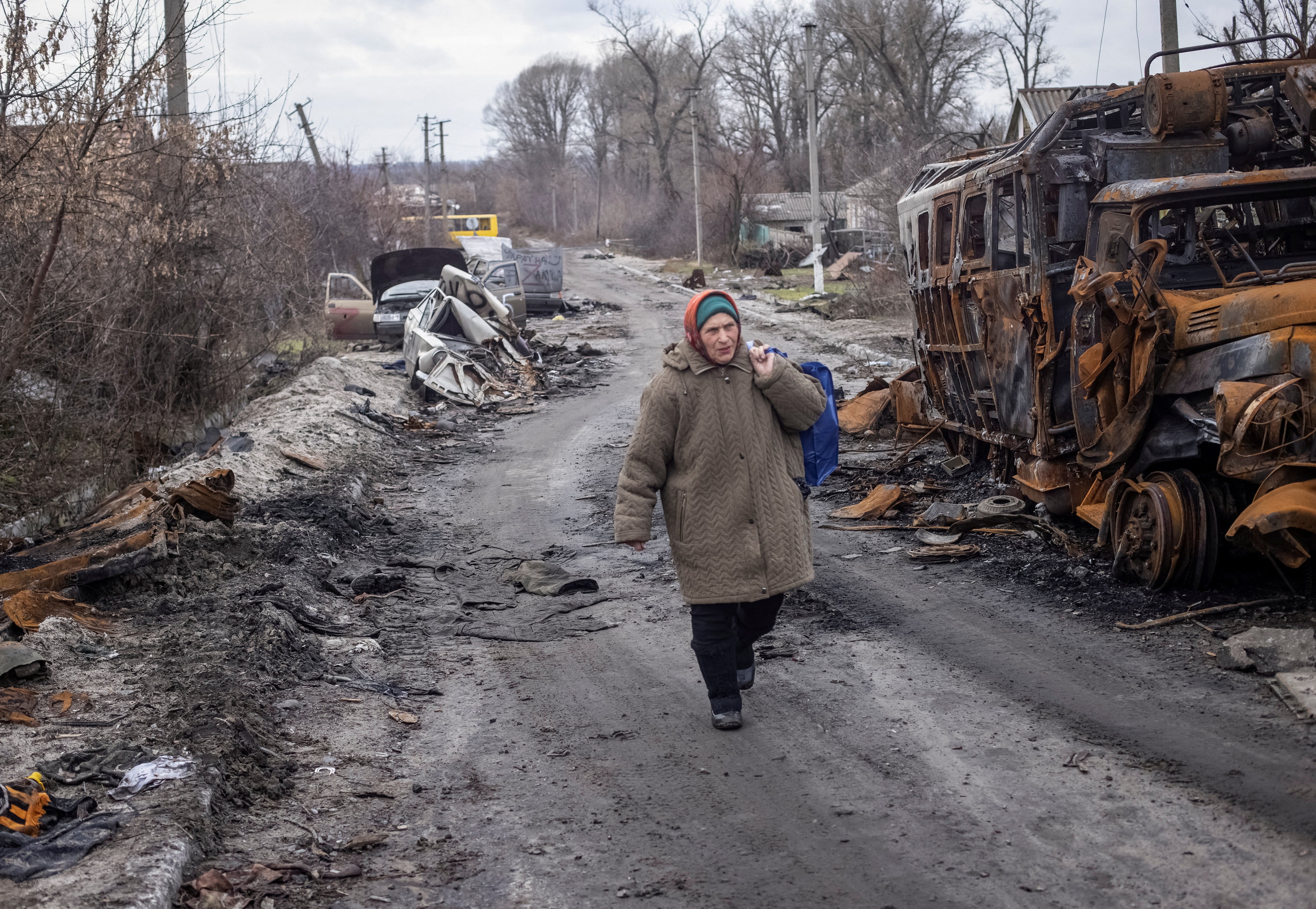The war in Ukraine has reached stalemate on the ground – and in the air
Editorial: Where once Russian rockets could attack Ukrainian cities and civilian infrastructure with impunity, they are now being shot at and shot down

It is not quite a year since Vladimir Putin launched his euphemistically named “special military operation” to “liberate” Ukraine.
It was supposed to be a multi-pronged lightning attack, with the thrust towards Kyiv designed to decapitate the government and force Volodymyr Zelensky into exile. Today, President Zelensky is a global hero, and if anyone seems likely to be heading for the escape hatch in 2023, it is Mr Putin.
What has been swift is the drift towards a state of malign attrition between the two sets of forces. For the moment, given the cold weather (which is forecast to worsen), the war is now in a state of stalemate on the ground – and increasingly in the air.
Where once Russian drones and rockets could attack Ukrainian cities and civilian infrastructure with impunity, they are now being shot at and shot down. Many still get through, but the supply of advanced Western anti-missile weaponry is just beginning to bolster Ukrainian defences.
The Patriot system is coming. But Ukraine is already better able to retaliate in kind. As demonstrated by the latest highly successful aerial attack on Russian and separatist forces in Donetsk, advanced precision missile systems are capable of wreaking enormous damage on Russian forces and weapons dumps commensurate with the damage inflicted by Moscow on Ukrainian power stations.
Scores of Russians perished in the latest raid, it has been claimed. It also destroyed an undisclosed quantity of munitions, apparently thanks to one particularly lucky, or simply well-aimed, hit on an ammunition store. A few days before, a Ukrainian drone managed to hit the Engels air force bomber base, well inside Russia itself.
As the provision of Western military hardware, intelligence and financial assistance continues to flow east, the pressure on Russian forces can only intensify. Increasingly made up of mercenaries, ex-convicts and terrified conscripts, the Russian army is in a poor position to hit back on the ground, while in the air the Ukrainians are evening up the balance of power.
In the spring, when the ice melts, there may be more ground offensives and counteroffensives, as well as the constant mutual bombardments via rockets and drones. Russia is running low on its expensive guided missiles, but retains an absolute advantage in the sheer size of the population it can draw upon to replenish the ranks of those who have perished on the front line. The Ukrainians enjoy an increasing technological advantage, but have fewer troops.
Kyiv also has to ensure it retains the backing of the US, where isolationism is the latest pathogen to infect the Republican Party; but the Kremlin, which is increasingly reliant on Chinese markets and political support, will have to heed Beijing’s warnings about over-antagonising America.
No doubt China’s president, Xi Jinping, made his views about the risk of escalation clear to President Putin. Stray missiles landing on Polish and Belarusian soil failed to trigger a panicky accidental widening of the conflict and drag in other armies. The Ukraine war has settled into a particular pattern.
It all raises the question of what victory would look like for Russia, or for Ukraine. For Ukraine, winning the war would obviously imply the recovery of its territory in the east and in Crimea, seized years ago. Yet no one thinks Ukrainian forces are going to march into Moscow to secure it.
For Russia, victory would mean occupying a vast and hostile land made even more hateful by its terrorism against Ukrainian civilians. Yet even if either of those unlikely states of affairs were to materialise, neither would be stable. It would be a victor’s peace, which is no peace at all.
A war with such an even balance of military forces – and that neither side can win – is a war that will drag on for a very long time. Unless, that is, there is political change.
Of the many possibilities – low chance or not – a change of regime in the Kremlin would be easily the most welcome. Mr Putin retains control over the media and much of the political apparatus, but many around him, and in the wider population, weary of a cruel, unwinnable war against their neighbours, will ask what is the use of such a man if he cannot deliver the greater Russia he promised them. Answer: none.






Join our commenting forum
Join thought-provoking conversations, follow other Independent readers and see their replies
Comments